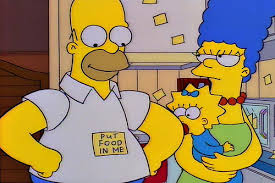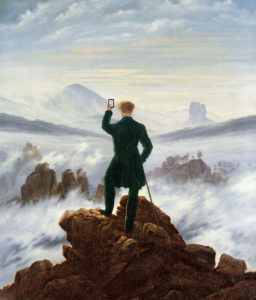One of the main reasons I devote time to this website is that I’m trying to make sense of the deluge of health information raining down through the internet ether waves on a daily basis. It’s an impossible task, I suppose. Unless you are going to take the time to read and evaluate all of the studies cited in an article or interview (and who’s kidding who, I’m not doing that!), then you have no alternative but to put some faith in an “expert” or two. Or at least put enough faith in them to inspire you to try a few life experiments based on some tentative theories. One guy who has run a shit-ton of these life experiments is the stand-up comedian/mixed-martial arts commentator/podcaster extraordinaire Joe Rogan. His podcast, The Joe Rogan Experience, has featured so many fascinating and compelling conversations on such a variety of topics that it can be hard to keep track of them all. Recently, Joe has had in-depth conversations with two nutrition experts (Dr. Rhonda Patrick and Chris Kresser) and one journalist/author (Gary Taubes) on wide-ranging topics having to do with nutrition and health science. Check them out below if you have nine hours to spare!
One of the more interesting things Patrick and Rogan talked about is the idea of “time restricted eating,” which is the practice of limiting all of one’s consumption (of anything other than water) to a 9 to 12 hour window, meaning that if you have breakfast at 7am then you do not consume anything after 7pm. Again, I didn’t fact check any of the science, but Patrick is getting her ideas on this topic from a Dr. Satchin Panda of the Salk Institute (Here are some podcast notes from a conversation between Patrick and Panda on the subject of time-restricted feeding.) It’s a circadian rhythm thing, whereby we can tune up our metabolic processes to be more optimal. It’s all based on mice studies, so who the hell knows if it truly applies to humans. But it sounds interesting and it’s easy to run some personal life experiments in order to see what might happen.
Gary Taubes and Rogan talked about the relation of sugar consumption and health problems, a topic I have been skeptical about on the (probably shaky) grounds that I’ve eaten a boat-load of sugar in my life with no noticeable ill effects. Taubes has got me thinking a lot more deeply on the subject and, truth be told, I’ve been gradually limiting my sugar intake for years based on a rationale no more complicated than “too much sugar can’t be good for you.” One thing that Taubes pointed out during this conversation with Rogan is the simple observation that it takes only a minute or two longer to scramble up some eggs than it does to prepare a bowl of cereal. I’ve been eating cereal (containing no more than 5 grams of sugar per serving) every morning for as long as I can remember, mostly because it’s quick and easy. This week I had eggs a couple of mornings, and I did notice that I was a lot less hungry between breakfast and lunch. Are eggs great for you? Again, I haven’t looked at the science myself, but Joe Rogan and his guests seem to think so, so what more do you want? (I’m confessing my ignorance here folks, so take this all with a grain of salt. By the way, is salt good or bad for you? Who the hell knows!)
It’s been a while since I listened to the conversation between Rogan and Chris Kresser, but I remember thinking it was pretty interesting, especially when they talked about the “ketogenic diet.” The big takeaway that stuck with me was that eating things, like avocados, that are high in healthy fats, is a much better practice than eating things high in carbs, like pastas and breads. Anyway, I don’t know what to tell you. Check it out if you’re interested in some interesting takes on healthy eating and living that call into question much of what folks from my generation were taught in the 80s and 90s.
Finally, for the easiest-to-digest take on dietary health of all time, there’s always good ol’ Homer Simpson.



